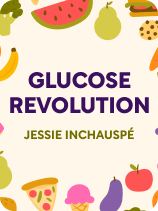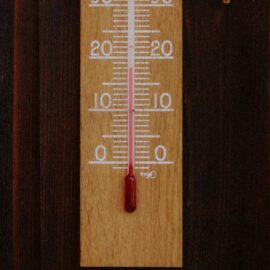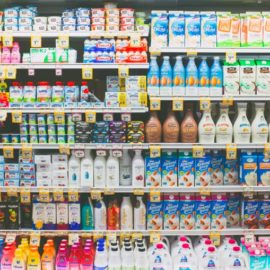

This article is an excerpt from the Shortform book guide to "Glucose Revolution" by Jessie Inchauspé. Shortform has the world's best summaries and analyses of books you should be reading.
Like this article? Sign up for a free trial here.
What causes blood sugar spikes? What are the consequences of frequent blood sugar spikes?
Blood sugar spikes happen when your blood sugar rises and then falls sharply following a meal, resulting in lethargy and hunger. In her book Glucose Revolution, biochemist Jessie Inchauspé offers some tips on how to stabilize blood sugar levels and prevent fluctuations in your energy levels throughout the day.
Here’s a look at the dangers of blood sugar spikes and how to keep them stable.
The Dangers of Blood Sugar Spikes
When we experience blood sugar spikes, the pancreas releases insulin to store away the excess glucose as glycogen in the liver, muscles, and fat. The more glucose there is, the more insulin is released, and the more glucose has to be stored as fat.
In addition, as the pancreas releases more and more insulin, our cells become resistant to the hormone. Because of this resistance, larger quantities of insulin are needed to store the same amount of glucose as glycogen.
Eventually, the storage system fails—the body can’t store glucose as glycogen anymore. With nowhere and no way to store glucose molecules, their concentration in our bodies increases permanently.
Tip #1: Eat Savory Foods for Breakfast
The author argues that we shouldn’t eat sweet, carbohydrate-rich foods at breakfast because we’re especially vulnerable to glucose spikes first thing in the morning. After sleeping and not eating for hours, the first thing we eat gets digested very quickly, so glucose from carbohydrate-rich foods is absorbed too rapidly. Then, this causes glucose spikes that throw our glucose out of balance for the rest of the day.
The easiest way to stabilize blood sugar levels at breakfast is to eat savory foods. Inchauspé suggests focusing on protein like eggs, then adding in some fiber and fat, such as kale and cheese.
(Shortform note: Some argue that eggs aren’t a very healthy option for a savory, protein-rich breakfast because they contain too much cholesterol, which contributes to heart disease. However, studies suggest that eggs have a minimal negative effect on the body compared to other high-cholesterol foods. Additionally, they provide essential nutrients such as vitamins B12, D, and A. Just watch that you don’t eat eggs with too many other foods high in saturated fats, salt, and cholesterol, like cheese, bacon, and butter. For a healthier option, try eating just egg whites with fibrous greens, or try cooking eggs in olive oil instead of butter.)
Tip #2: Drink Diluted Vinegar
Finally, Inchauspé states that drinking one tablespoon of vinegar diluted in a glass of water before eating something sweet can reduce a glucose spike significantly. Additionally, consuming one tablespoon daily can decrease your overall glucose levels.
(Shortform note: You can use any kind of vinegar to experience the effects Inchauspé describes, but apple cider vinegar in particular has been studied for its glucose-stabilizing properties. Research suggests that apple cider vinegar can improve insulin sensitivity, which is one way it lowers glucose levels. Recommendations for a pre-meal dose range anywhere from a tablespoon (like Inchauspé suggests) to two tablespoons diluted in water. Apple cider vinegar is also thought to improve digestion, help fight infections, and reduce the risk of heart disease and cancer, but little research has been done to support these claims.)
These glucose-lowering effects come from the acetic acid in vinegar, which briefly inactivates alpha-amylase. Without the enzyme doing its work, starch and sugars can’t change into glucose as quickly, and we absorb glucose more slowly, preventing spikes.
(Shortform note: One study found that lemon juice also had an inhibiting effect on alpha-amylase, reducing participants’ glycemic response to bread (which is primarily starch). Lemon juice doesn’t contain acetic acid, but it does contain a high concentration of citric acid. This suggests that generally, acidic foods that lower the pH of a meal may help slow the digestion of starch.)

———End of Preview———
Like what you just read? Read the rest of the world's best book summary and analysis of Jessie Inchauspé's "Glucose Revolution" at Shortform.
Here's what you'll find in our full Glucose Revolution summary:
- Why you feel hungry soon after you eat and get tired throughout the day
- The role glucose plays in your body, both positive and negative
- Strategies for taking control of your health and glucose levels






